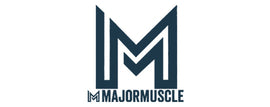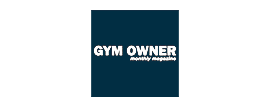How do I take creatine monohydrate?
How much creatine per day?
Can I use it while dieting?
How do you load it?
When do I take it?
GHN have pulled together a "All You Need To Know" blog when it comes to using creatine correctly.
Most bodybuilders and gym goers are familiar with creatine monohydrate. Whether they’ve used it themselves personally or have just heard others in the gym talking about it, there’s often a lot of confusion around this popular supplement.
Chances are, there are quite a number of people not taking creatine correctly. Creatine powder is one supplement that needs to be taken in the right to make the most of its benefits.
There are several ways you can go about including this supplement into your routine. Let’s see if GHN can clear some of that confusion up.

HOW TO LOAD CREATINE
Typically, people start taking creatine supplements with a loading phase. This is designed to completely flood the muscle’s supplies with creatine, then advance into the maintenance phase where you’ll reduce the dose to keep levels where they need to be.
Usually, you’ll use 20 grams of creatine over the course of five days. This is the fastest way to increase the stores in the body and get yourself back onto maintenance.
Since creatine can trigger water retention in some people, together with gastric upset, some decide to do a lighter version of the loading phase than is recommended.
Rather than 20 grams, these people use a lower dose of just 10 grams per day, loading this over a period of 10-14 days instead. Whilst the bloating is less, the loading period is longer.
If you’d prefer not to load at all, you can choose five grams of creatine taken over the course of a month. That said, your results may differ from the former two methods.
Bear in mind that it’s not advisable to go over the recommended 20-gram dose for five days straight. This is because longer-term, high doses of creatine will convert to formaldehyde in the urine.
CREATINE MAINTENANCE DOSE
Once you’ve completed the loading phase, you then progress to maintenance. Whilst some maintain on five grams per day, others need two to three grams per day.
If you’re eating a diet lacking in red meat, or you’re vegetarian, you may want to maintain on five grams a day.
However, if you eat a lot of red meat, you may discover you don’t benefit much from creatine supplements, as your supplies are already fully topped up.
So, any additional creatine absorbed by the body will simply be excreted. Therefore, supplementing won’t be of any use to you.
It’s important to note that you must take creatine regularly if you want it to be helpful. Taking it ‘as and when’ won’t be of much benefit. If you’re especially lacking in creatine stores, then performing a loading phase will supplement your exercise, but if you want to take advantage of creatine’s benefits, then make sure you keep those stores topped up afterwards.
HOW DO I TAKE CREATINE?
So, how should you take creatine? The supplement can get into your muscle cells quicker if an insulin spike is taking place. This is why you may have heard that taking it with juice (grape or orange) is a good idea.
Creatine is often best taken after a training session, as this is when muscle glycogen is most receptive to topping up supplies.
You may want to split up the dosages during the loading phase by taking it over two or three times in the day otherwise it’ll be too much for your body to manage simultaneously.
It’s best to take something with it. Plump for a post-workout powder made up of protein and carbs or a nutritious meal. This way, there’s less chance of a stomach upset from occurring.
And remember. Creatine isn’t just designed for the weight lifters among us. It’s also ideal for athletes who partake in a lot of high-powered, explosive sports, as their muscles will be depending on muscle stores of creatine, too.

WHAT IF I’M ON A DIET?
On a diet? Wondering whether creatine will be of benefit to you? Classically, creatine is linked with ‘bulking’ periods, as its main purpose is to promote the muscle building process which enables you to train for lengthier periods in the gym.
But when it comes to losing weight, naturally, you’re more concerned with fat loss rather than strength and muscular gains. So, why would creatine be of use to you?
Actually, creatine can be incredibly beneficial to any dieter, as it helps preserve the intensity of your training sessions. When you’re on a low-calorie diet, you’ll have to make sure your exercise sessions are cut down in volume. You may also notice that strength begins to wane because of the diet, so ensuring your creatine supplies are fully stocked will help counteract these undesirable side effects.
As a side note to the above, carbohydrates are reduced when dieting. This means creatine will take longer to be absorbed than if you were eating more carbs. That said, they will get into the muscle. So, you could take creatine with water (or protein) together with a meal (to lessen the chance of a stomach upset).

HOW MUCH CREATINE SHOULD I TAKE PER DAY?
When first starting to take creatine powder, it is recommended that you take one serving (one level 5g scoop) with your morning, afternoon, and evening meals and before bed for 4-5 days to help saturate your muscles with creatine. After this, take one serving per day – this could be with a meal, after training in a post-workout protein shake, or during your session in your BCAA.
SUMMARY










